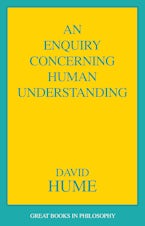
An Enquiry Concerning Human Understanding
Published by: Globe Pequot
Sales Date: 09/01/1988
149 Pages, 6.00 x 9.00 x 0.50 in
Other Retailers:

Published by: Globe Pequot
Sales Date: 09/01/1988
149 Pages, 6.00 x 9.00 x 0.50 in
Other Retailers: